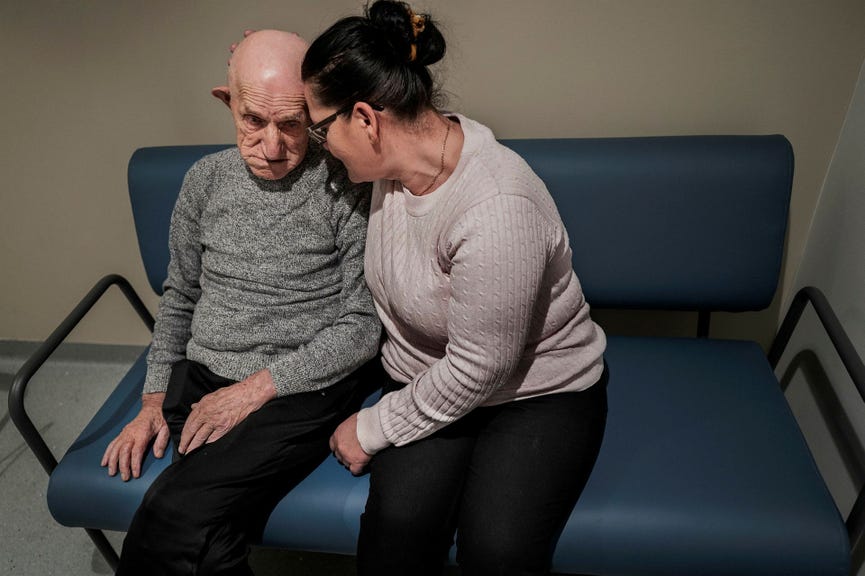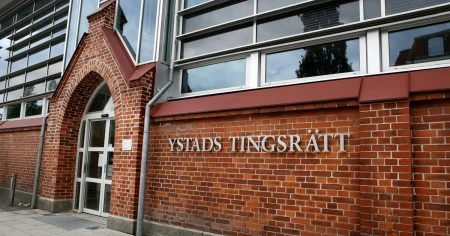The story of 86-year-old Halim Allushi highlights the complexities and often harsh realities of immigration laws, particularly concerning elderly individuals seeking refuge with family in a new country. Halim, suffering from dementia, lung disease, heart problems, diabetes, and recurring infections, was held in a Swedish immigration detention center facing deportation to Albania, his home country. His daughter, Liljana Allushi, a Swedish resident since 2006, desperately fought to keep her ailing father with her, emphasizing his deteriorating health and her unwavering commitment to his care. Repeated visits to the detention center, where she witnessed her father’s physical and mental decline, fueled her determination to overturn the deportation order. She maintained that she would accompany her father back to Albania if he were deported, unable to bear the thought of abandoning him in his vulnerable state.
The Swedish Migration Agency argued that Halim could receive adequate medical care in Albania and that his daughter’s residency was insufficient grounds for him to remain in Sweden. While the Agency acknowledged the existence of provisions for granting residency based on “exceptionally compelling circumstances,” particularly in cases involving end-of-life care, they deemed Halim’s situation not to meet these criteria. The Agency’s press chief, Jesper Tengroth, emphasized the requirement of a formal application for residency based on family ties and underscored that the current immigration laws did not automatically grant entry based solely on the illness of a relative living abroad. Furthermore, he pointed out that Sweden’s immigration policies are a reflection of the electorate’s will, established through democratic processes.
Halim’s detention sparked outrage among fellow detainees, who protested the inhumane treatment of a frail, elderly man clearly in need of specialized care. Their advocacy led to Halim’s transfer to a smaller section of the facility, where he received assistance from home care services, highlighting the incongruity of a detention center providing healthcare to individuals deemed deportable. Liljana questioned the logic of denying her the right to care for her father at home, emphasizing his harmlessness and her family’s desire to provide him comfort and support during his remaining time.
The case underscores the rigid application of immigration laws, often failing to account for the nuanced and deeply personal circumstances of individuals seeking refuge. While legal procedures exist for exceptional cases, the threshold for meeting these criteria is often high, leaving vulnerable individuals like Halim trapped in a bureaucratic labyrinth. The situation also raises questions about the allocation of resources, with the state expending funds to detain and potentially deport an elderly, ill individual who poses no threat to society.
A turning point came shortly after a journalist’s visit to the detention center. The Migration Court overruled the police decision to detain Halim, acknowledging the deterioration of his health while in custody. He was released under the condition of reporting to a police station weekly. This decision brought immense relief to Liljana and her family, allowing them to bring Halim home and provide him with the care and support he desperately needed. The court’s recognition of the detrimental impact of detention on Halim’s health and the impracticality of holding him solely to facilitate deportation marked a victory for compassion and common sense.
Halim’s story serves as a potent illustration of the human cost of rigid immigration policies. It highlights the need for greater flexibility and consideration of individual circumstances, particularly when dealing with vulnerable populations like the elderly and infirm. The case also underscores the crucial role of advocacy and media attention in bringing such situations to light and influencing positive change. While the outcome for Halim was ultimately positive, it begs the question of how many others face similar struggles in silence, caught in the impersonal machinery of immigration enforcement. The tension between upholding established laws and demonstrating compassion for individual circumstances remains a central challenge in navigating the complexities of immigration.














